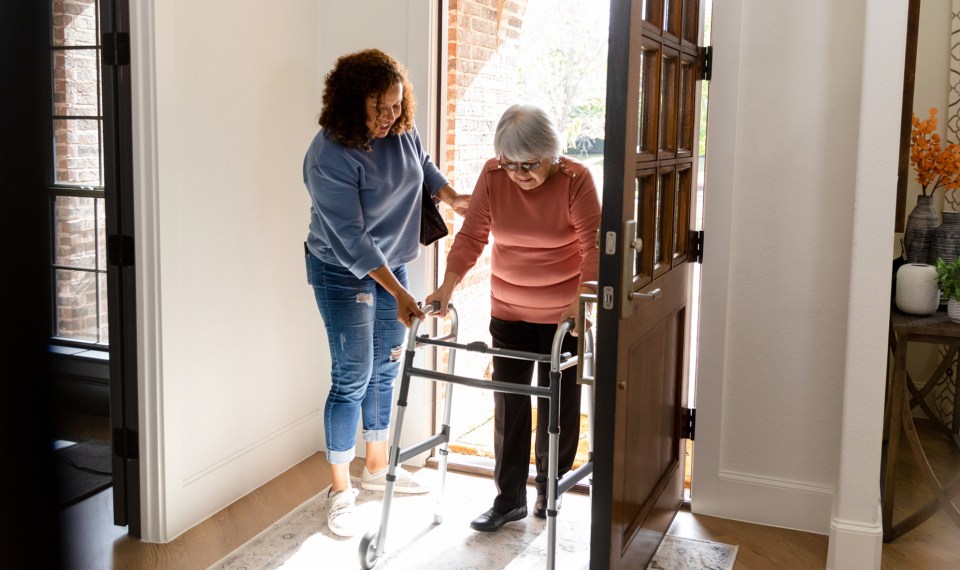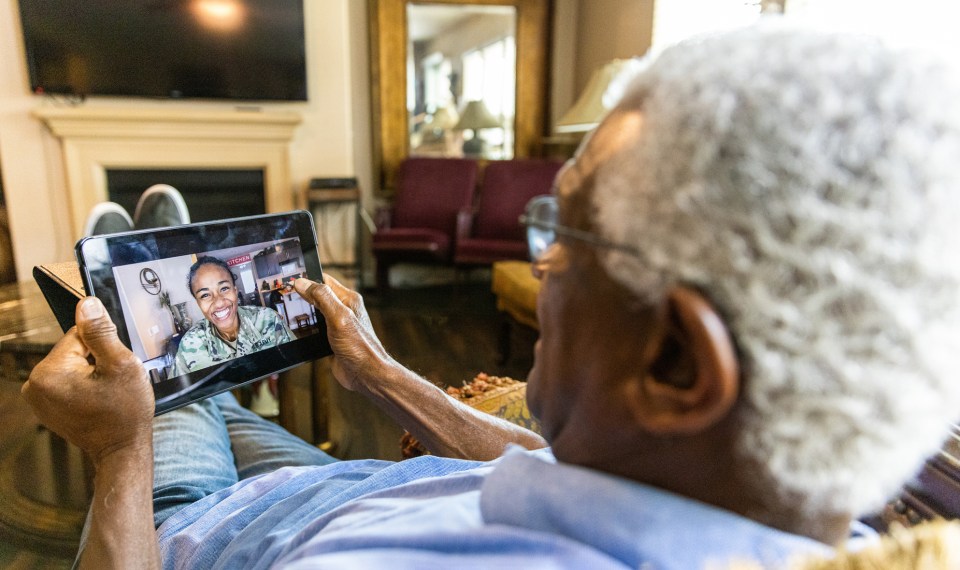Caregiving is a big responsibility, but one taken on out of love and a desire to make life better for someone dear to you. While it is admirable to want the special people in your life to receive the best care possible, you are likely stepping into a role for which you have no training or experience. To complicate matters further, as a caregiver, you are also juggling your own home, work, family and financial responsibilities.
According to Caregiving in the US 2020, a report published by the National Alliance for Caregiving, 53 million Americans are providing unpaid care for relatives or friends. This comes at great sacrifice since the average caregiver delivers 23.7 hours of care a week. If the care recipient lives with you in your home, your care duties total an estimated 37.4 hours per week.
It is no surprise that caregiving has been shown to impact the mental, emotional and physical health of the caregiver. With mounting responsibilities, it is easy to neglect your own health and wellbeing, but putting off self-care can end up more expensive in the long run. The following steps can help prevent caregiver illness or injury:
- Safety first – remember not to take shortcuts to save time or money. Use gloves and gowns as needed to protect yourself from contamination from bodily fluids and implement other protective gear when indicated. To prevent injury, use proper lifting techniques or lifting assistance devices.
- Fuel your body – make it a point to get seven to eight hours of sleep each night, avoid junk food, aim for nourishing well-balanced meals, keep routine medical and dental appointments and take a daily walk or enjoy a favorite activity when possible.
- Set limits – don’t set yourself up for failure by taking on more than you can do. Ask for help from others and consider all available options such as enlisting a home health aide or housekeeper a few hours a week.
For more information on caregiving, check out these tips for caregivers.
In-Home Care Options
If your loved one needs more help than you can provide, be honest with yourself. Talk with your loved one’s primary care provider about specific needs and how much care you can reasonably deliver. The following are some in-home options to consider:
- Home health – if your loved one requires skilled medical care, including nursing or therapy services on a short or long-term basis, they may be eligible for home health services. Medicare covers some home health services including skilled nursing care, physical therapy, speech-language pathology services, and continued occupational therapy if you are under a doctor’s care and your doctor certifies such services are needed. Learn more about Encompass Health home health services.
- Home care – this covers nonskilled services such as help with hygiene, dressing, meal preparation, and transportation. Individuals who need assistance with these types of daily living activities can benefit from home care, which does not include skilled nursing care.
- Adult sitters – in cases where patients need a little extra help while you are at work or are unavailable, the solution may be to enlist a sitter skilled in caring for the elderly. Sitters provide companionship and assistance with a wide range of activities including meal preparation, light housekeeping and running errands.
Inpatient Rehabilitation
In the event of a stroke or other life altering illness or injury, inpatient rehabilitation can help patients regain independence. Rehabilitation has been shown to be effective in relearning skills and avoiding the development of new medical problems such as pneumonia or urinary tract infections. It can also reduce the risk of falls and blood clots.
With customized treatment plans, innovative technologies and advanced therapies, rehabilitation hospital patients participate in a minimum of three hours therapy, five days a week. A team of therapists evaluate individual needs and prepare a care plan to address these needs. Advanced therapies available to inpatients include physical therapy, speech therapy and occupational therapy. At Encompass Health Rehabilitation hospitals, your loved one’s care team will design a plan unique to them and their recovery goals. The caregiver is also an integral part of the care team. If you are caring for a loved one you feel would benefit from inpatient rehabilitation, talk with your primary care provider about this service or contact an Encompass Health location near you.
Legal Rights for Caregivers
The Family Medical Leave Act (FMLA) allows certain employees to take time off work for caregiving if specific requirements are met. Caregivers may take up to 12 weeks of unpaid leave to care for a spouse, child or parent with a serious health condition. Although unpaid, the act provides job protection for you while you are away from work caring for a loved one. To qualify, you must have worked for the employer for at least 12 months and logged a minimum of 1,250 hours of service for that employer.
The FMLA applies to private-sector employers with 50 or more employees within 75 miles. It also applies to all local, state or federal government agencies and all public or private elementary and secondary schools regardless of the number of workers they employ.
Some states, but not all, have their own FMLA. In states with their own FMLA laws, employers must meet the requirements of both the federal law and state law. Coverage may be nearly identical to federal coverage or may be more expansive.
The ADA (Americans with Disabilities Act) prohibits employers from discriminating against those with qualified disabilities and offers some protection for caregivers. Under this act, an employer must not discriminate or retaliate against caregivers for certain disabled persons.
When requesting unpaid leave through the FMLA, the best place to start is by talking to your supervisor or the human resources department at your place of employment. They can work with you to complete the necessary forms and understand the steps involved.
Although caregiving can be challenging, it is also often rewarding. A 2014 National Opinion Research Center poll reported that 83 percent of caregivers viewed the experience as a positive. In addition to knowing your loved one is receiving excellent care, caregivers report feeling a renewed purpose in life, a sense of accomplishment, personal growth and, in some cases, the satisfaction of giving back to someone who cared for them.
The content of this site is for informational purposes only and should not be taken as professional medical advice. Always seek the advice of your physician or other qualified healthcare provider with any questions you may have regarding any medical conditions or treatments.



